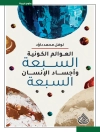In ‘Transcendental Magic: Its Doctrine and Ritual, ‘ Éliphas Lévi embarks on a profound exploration of esoteric knowledge, harmonizing the traditions of Kabbalah, alchemy, and the occult. Lévi’s literary style melds philosophical discourse with practical instruction, offering both theoretical insights and step-by-step rituals. Set against the backdrop of 19th-century occultism, the work exemplifies the synthesis of science and mysticism, elucidating the intricate connections between spiritual practices and metaphysical concepts within a broader cultural revival of interest in the arcane. Éliphas Lévi, a pivotal figure in the modern occult movement, drew upon his extensive studies in philosophy, theology, and mysticism to craft this seminal text. His life experiences, marked by personal struggles and religious inquiry, fueled his fascination with the unseen forces shaping human existence. Lévi’s engagement with the teachings of various mystical traditions equipped him with a unique perspective, enabling him to bridge the gap between ancient wisdom and contemporary seekers of spiritual truth. For anyone intrigued by the intersection of magic, philosophy, and ritual, Lévi’s timeless work serves as an essential guide. ‘Transcendental Magic’ not only illuminates the path to personal transformation but also invites readers to delve into the rich tapestry of esoteric traditions. Whether novice or adept, one will find invaluable insights awaiting discovery.
Про автора
Éliphas Lévi, born Alphonse Louis Constant (1810–1875), was a French occult author and a seminal figure in the revival of Western esotericism. He is widely recognized for his influential work in the field of magic and the occult, intertwining Catholicism with the ceremonial magic and Kabbalistic traditions. A former Roman Catholic priest who later delved into the study of hermeticism, alchemy, and the tarot, Lévi is perhaps best known for his book ‘Transcendental Magic: Its Doctrine and Ritual’ (1856), which became a cornerstone text for modern occult philosophy and practice. Lévi’s writings and his reinterpretations of the tarot as a book of ancient esoteric wisdom contributed significantly to the esoteric tarot movement that emerged in the late 19th and early 20th centuries. His literary style is characterized by a blend of scholarly research, accessible prose, and an attempt to reconcile religious thought with occultism. Lévi’s work provided a structured synthesis of magical thought, heavily influencing the Hermetic Order of the Golden Dawn and later figures in the esoteric tradition, including Aleister Crowley and Arthur Edward Waite. Through his comprehensive approach to esoteric knowledge, Lévi became a key figure in shaping the modern Western magical tradition.












